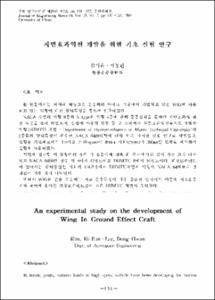The Psychological Rationale behind Foreign Language Teaching
- Alternative Title
- 외국어 교육에 있어서의 심리학적 논거
- Abstract
- 심리학자나 언어학자가 언어습득에 영향을 끼칠 수 있는 여러 가지 요소에 관하여 연구를 거듭해 왔다. 그러나 그 연구는 주로 어린이들이 그들의 모국어를 습득할 경우를 전제로 하고 있다. 성인들에게 외국어를 가르칠 경우에는 상기한 가정에 의거한 이론으로써는 충분히 설명될 수 없는 더 복잡한 문제를 야기하게 된다.
어떤 학자는 외국어 교육은 근본적으로 습관을 형성하는 하나의 기계적인 과정이라고 주자하고 있으며 또다른 학자는 우리 인간이 언어를 성공적으로 배울 수 있다는 것은 다른 동물이 가지고 있지 않은 선천적인 언어습득 능력이 있기 때문이라고 주장한다. 어느 주장이나 언어교육에 관련된 의미를 가질 수 있지만 실제로 우리가 가르치는데 조정할 수 있는 것은 환경 뿐이다.
외국어를 배우는데, 개인적인 차이를 나타내는 몇가지 요인이 있는데, 그 중에서 중요한 것은 적성, 동기, 그리고 연령을 들 수 있다. 게다가 개인적인 성격과 그가 속해 있는 문화적 배경이 그 요인에 포함될 수 있다.
Psychologists and linguists have conducted much research into various factors which may affect acquisition of a language. The research, however, has been made mostly on the assumption that children are to learn their mother tongue. Teaching a foregn language tio adolescents or adults causes more complicated problems which cannot be fully-explained by the theories based on that assumption.
Some psycholinguists have argued that foreign language learning is basically a mechanical process of habit formation and that our environment affects all of us in the same way. Others gave suggested that all human beings must possess some internal capacity for language that other animals do not have, for all normal human beings learn their langueages successfully. Although either view may have inplications ofr language teaching, it is only the environment that we variation in language learning. It is said that aptitude, motivation, and age are important variables. In addition, personality and cultural background to which the learner belongs may be included in the factors.
Psychologists and linguists have conducted much research into various factors which may affect acquisition of a language. The research, however, has been made mostly on the assumption that children are to learn their mother tongue. Teaching a foregn language tio adolescents or adults causes more complicated problems which cannot be fully-explained by the theories based on that assumption.
Some psycholinguists have argued that foreign language learning is basically a mechanical process of habit formation and that our environment affects all of us in the same way. Others gave suggested that all human beings must possess some internal capacity for language that other animals do not have, for all normal human beings learn their langueages successfully. Although either view may have inplications ofr language teaching, it is only the environment that we variation in language learning. It is said that aptitude, motivation, and age are important variables. In addition, personality and cultural background to which the learner belongs may be included in the factors.
- Issued Date
- 1984
- Type
- Research Laboratory
- Alternative Author(s)
- 김상훈
- Publisher
- 연구논문집
- Language
- eng
- Rights
- 울산대학교 저작물은 저작권에 의해 보호받습니다.
- Citation Volume
- 15
- Citation Number
- 2
- Citation Start Page
- 429
- Citation End Page
- 435
- Appears in Collections:
- Research Laboratory > University of Ulsan Report
- 파일 목록
-
-
Download
 000002024817.pdf
기타 데이터 / 619.26 kB / Adobe PDF
000002024817.pdf
기타 데이터 / 619.26 kB / Adobe PDF
-
Items in Repository are protected by copyright, with all rights reserved, unless otherwise indicated.